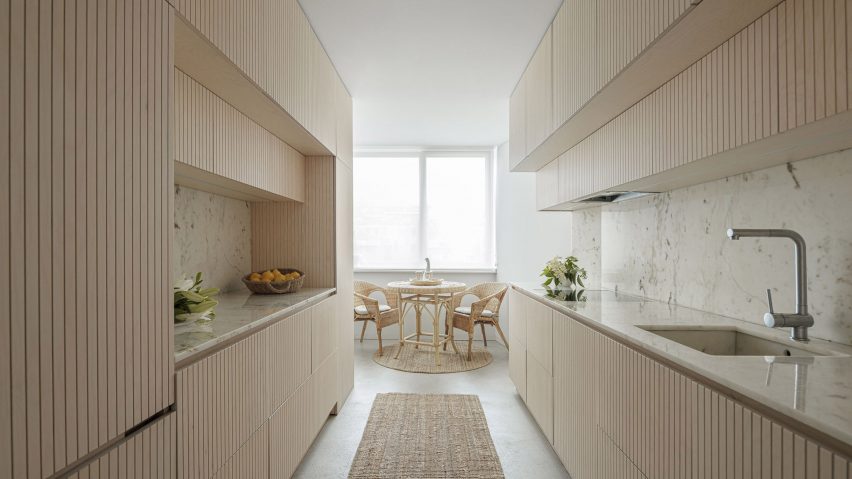
Exposed-concrete stair pulls light and views into Porto home by Tsou Arquitectos
A concrete staircase and curved lightwell draw light and views into Casa Vertical, a tall, narrow home in Porto, Portugal, which has been designed by local practice Tsou Arquitectos.
In response to the home's thin triangular site, Tsou Arquitectos chose to connect the spaces of the dwelling vertically, giving the project its name.
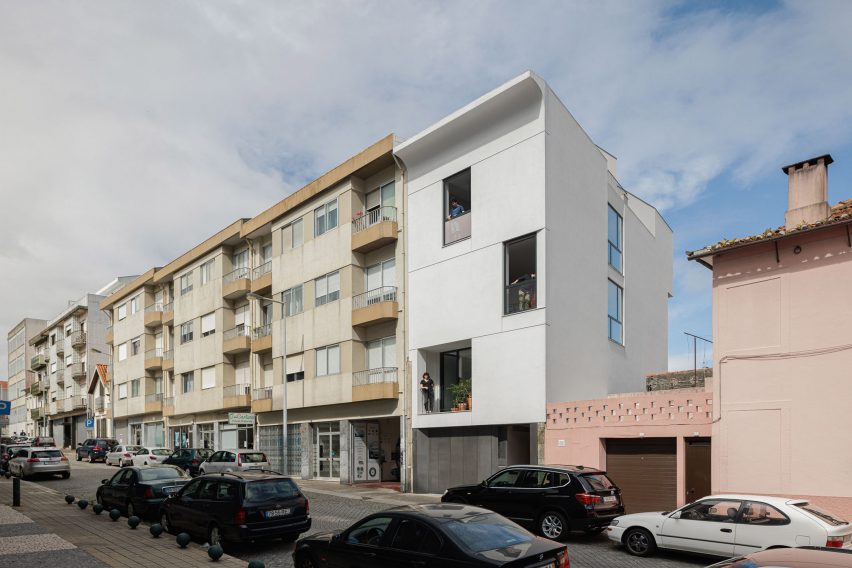
Entering alongside a garage, a hallway opens into a central staircase that organizes the home, which was cast in exposed concrete and lined with plywood panel balustrades.
In order to facilitate visual connections across the staircase, the spaces on either side of the four-storey home sit at half-floor intervals, creating glimpses between spaces while also allowing light to spread.
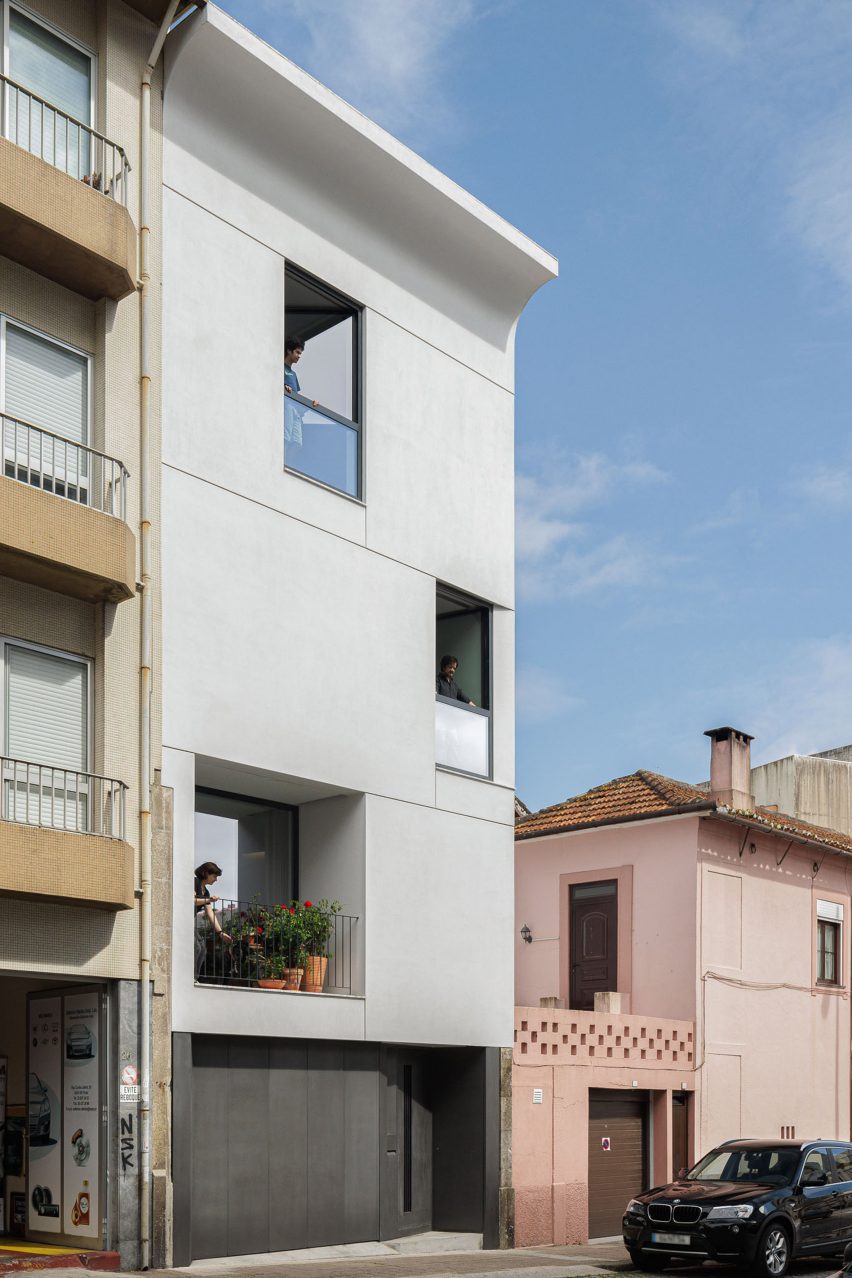
"The project intends to accommodate the functional programme on a narrow plot in the downtown area of the city," explained the practice.
"Its organisation develops around a central staircase with the rooms distributed in half floors. The staircase unifies the intervention, where the guardrail unfolds like an origami piece," it continued.
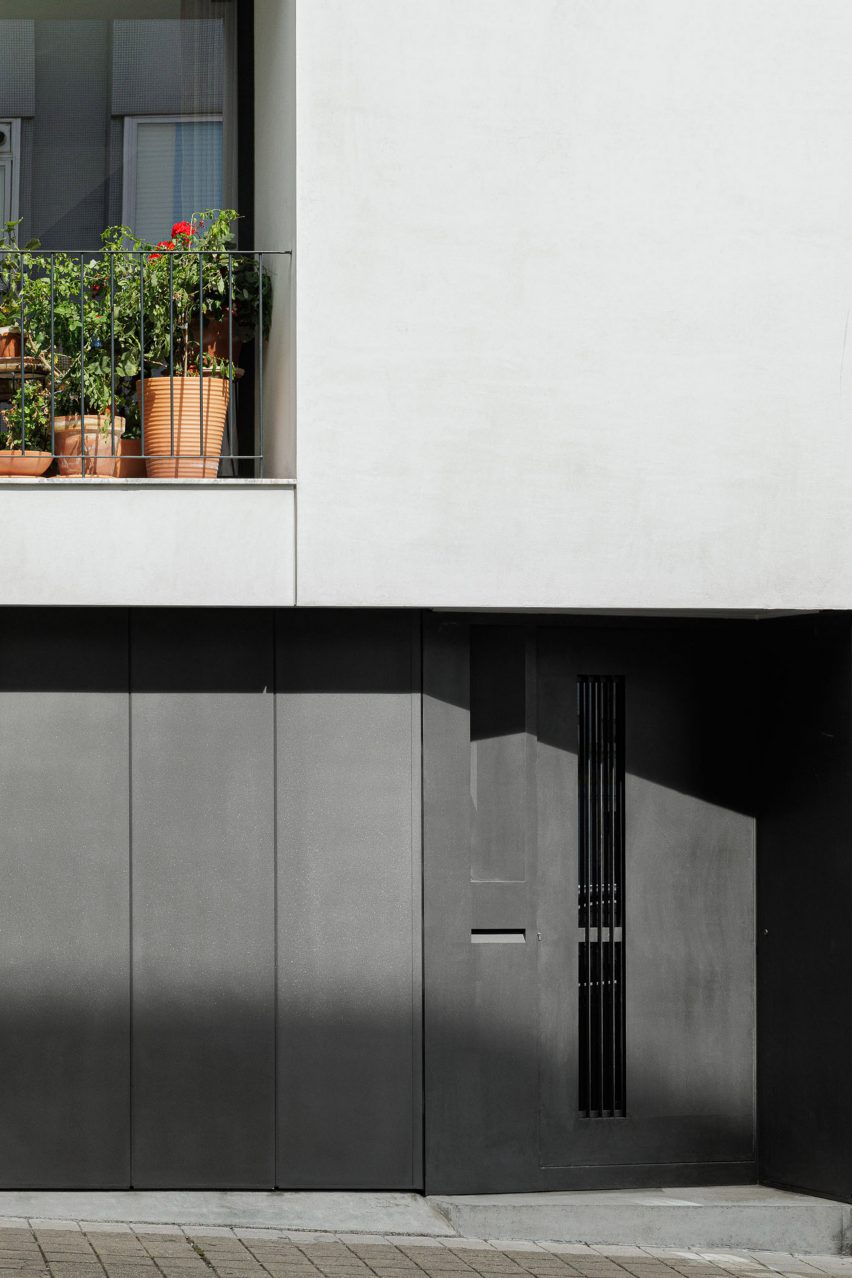
The home's ground floor steps down to a slightly sunken studio space, which overlooks a small garden at the rear of the home and is illuminated by a curving lightwell that cuts through to the first-floor living room above.
Above, the narrow eastern end of the home also contains a kitchen, bedroom and laundry room, with each level overlooking the back of the site through a large window.
On the opposite side of the staircase, the western side of the home is occupied by the ground-floor garage.
The first floor holds a dining room with a balcony, while bedrooms and bathrooms are located on the second and third floors.
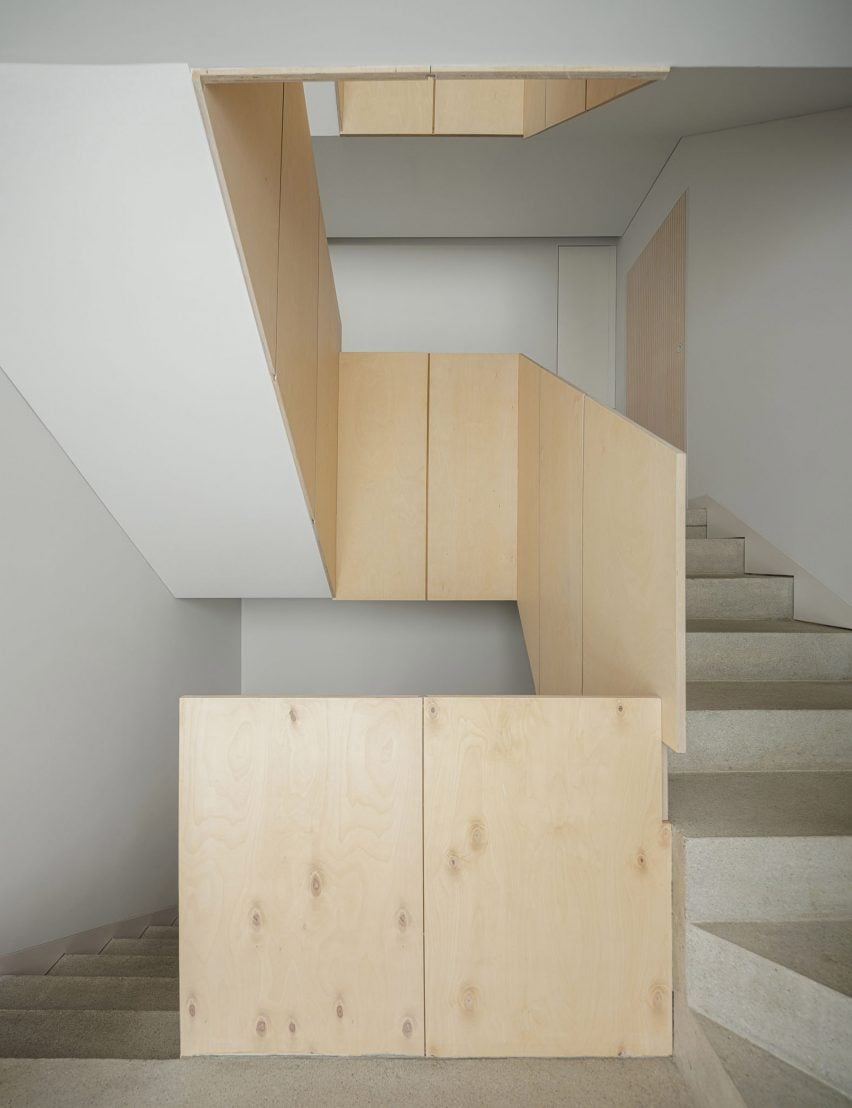
At the top of Casa Vertical, a rooftop terrace overlooks the city below, finished with simple paving and and outdoor seating area.
Externally, the proportions of the home's facade mirror those of its neighbours, but the building is finished in minimal white plaster and topped by a gently curving section.
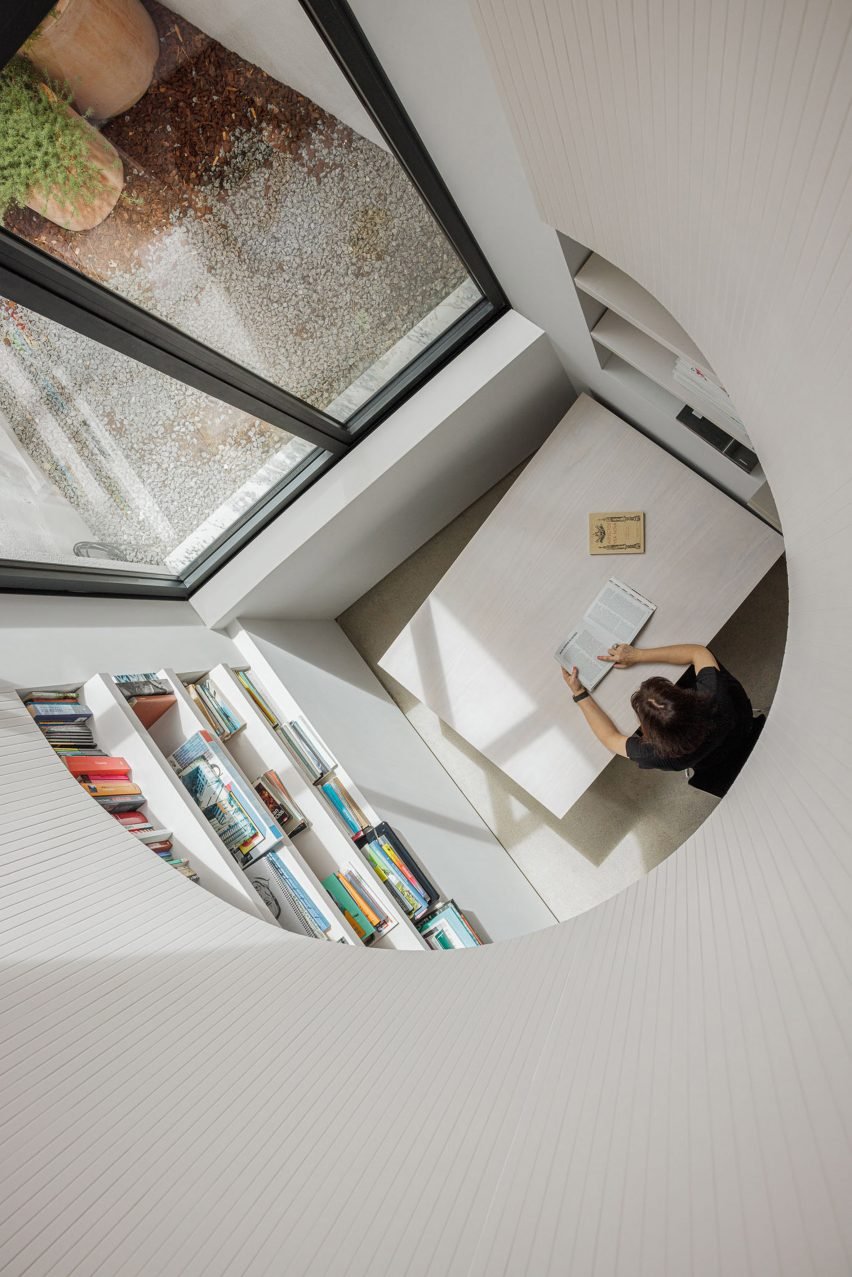
"The house facade refers to the typical Porto urban house composition, with its vertical windows, tripartition of the facade and the cornice top," explained the practice.
"The monolithic character is reinforced by the uniform finish and the stereotomy of the facade's lines," it continued.
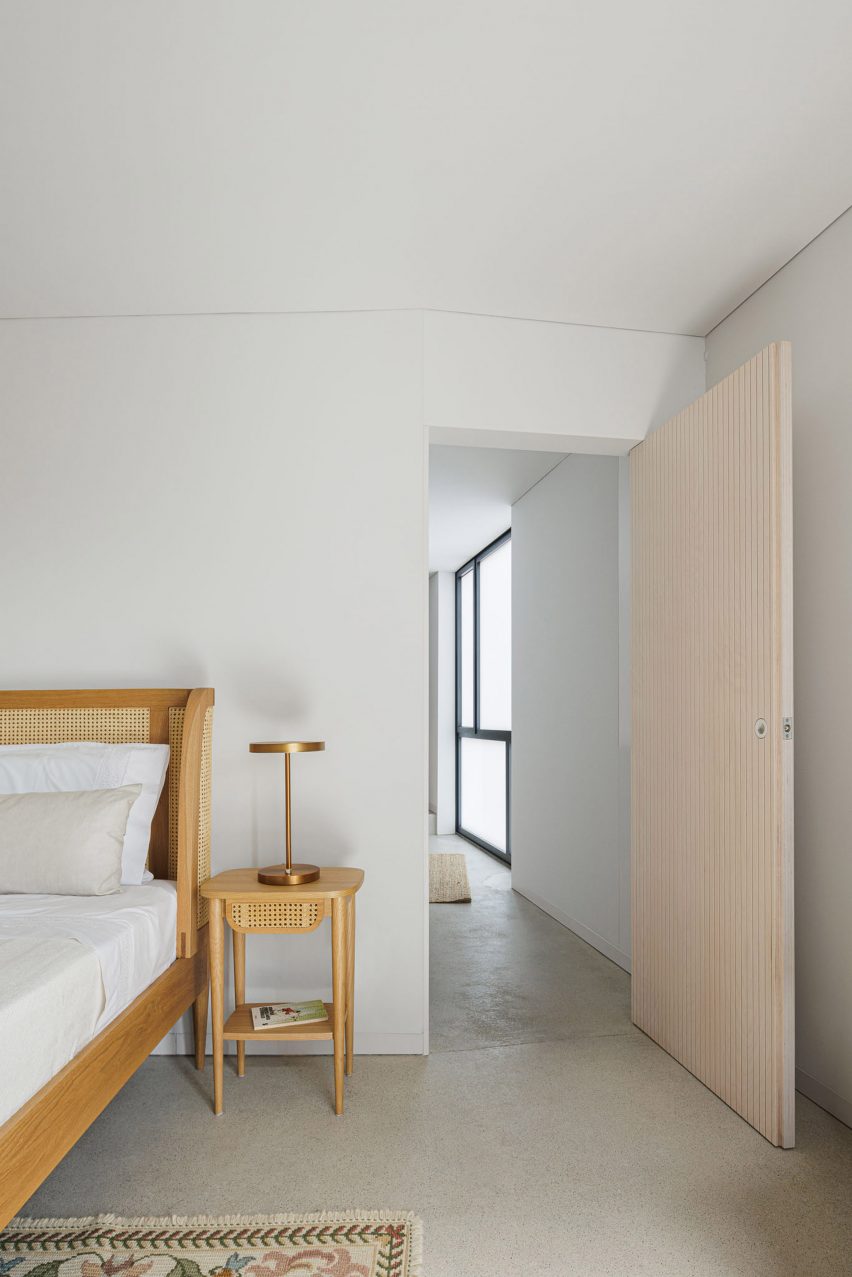
This minimalist character is carried through to the interiors, which are defined by exposed concrete, white walls and timber carpentry to create a light, natural palette.
"Raw materials such as cement on all floors and soft wood for doors, cabinets and guardrails reinforce the unity of the residential project, [with] marble stone used in kitchen countertops and sanitary installations," said the practice.
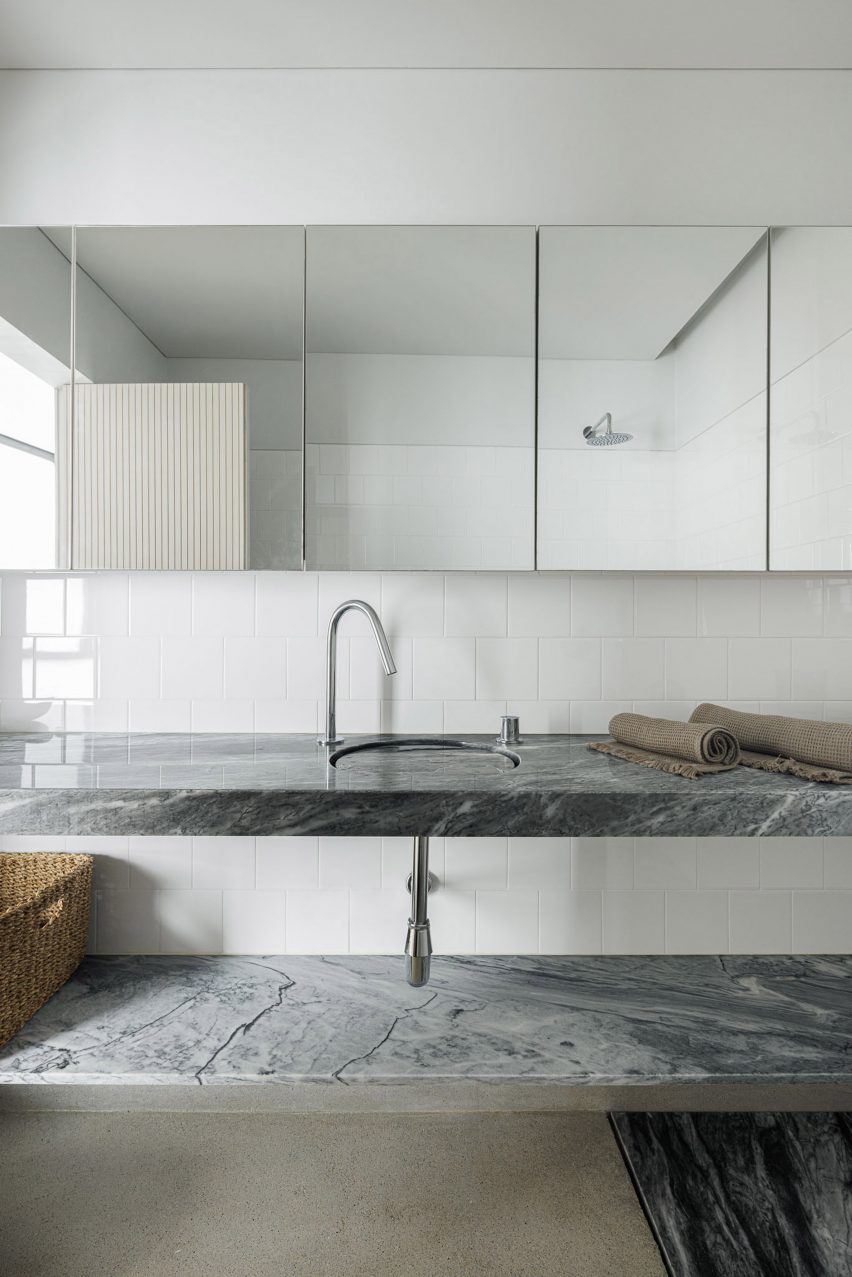
Other residential projects recently completed in Porto include a tiny "palazzo" garden room by local studio Fala Atelier and a home by architecture practices WeStudio and Made incorporating mezzanines and light-filled living spaces.
The photography is by Ivo Tavares Studio.